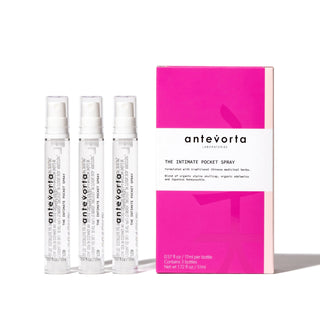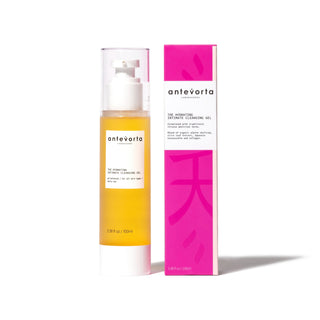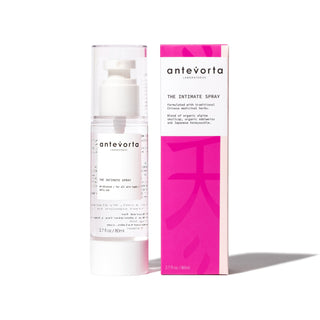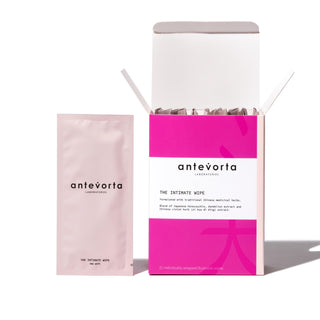Is it safe to say that "collagen" is one of the biggest anti-aging buzzwords out there? It honestly makes sense, given that this protein is a building block of our skin, hair, nails, and connective tissue. Among other things, collagen works with different nutrients to give skin its elasticity, moisture, and volume. And as we age, our collagen production naturally decreases—which is why it’s seen as such an hero skincare ingredient.
But while most of us probably associate the benefits of collagen with our face, the truth is it plays fundamental roles all over the body, including our vaginal health. In fact, collagen has a pretty significant link with our sexual wellness and pleasure, due to its role in vaginal wall structure and mucus membrane function.
Let’s take a closer look at collagen’s role in sexual wellness—and how to support collagen production through our daily habits and some choice products.
First up: What is collagen?
Collagen is essential to our vaginal structure, elasticity, and lubrication.
Our vaginal walls are primarily made of smooth muscle tissue and different kinds of collagen—which contributes specifically to elasticity and strength. But the collagen in our vaginas also supports hydration and the membranes responsible for cervical mucus—so basically, our natural "lube."
You know those vaginal rejuvenation treatments that have become so popular? Their goal is to stimulate collagen, and in turn, decrease dryness and looseness that can happen with age. Estrogen also plays a role in collagen production—which is why when those hormone levels decrease as we approach to menopause, these changes tend to happen much more rapidly. (According to the American Academy of Dermatology, women’s skin loses about 30 percent of its collagen during the first five year of menopause.)
Collagen plays a role in our sexual pleasure.
Because of its hand in our natural lubrication and elasticity, the loss of collagen as we age can interfere with sex—especially if we’re experiencing more dryness. On the flip side, some research suggests that the oxygen increase during sex can actually stimulate collagen production. (Hey—the more you know.)
How can I maintain my natural collagen?
We can support collagen production by embracing certain habits—and avoiding others.
Because there are a few different processes that stimulate our natural collagen production, supporting this protein is best approached holistically. Eating a diet rich in antioxidants, vitamin C, and amino acids can help support our collagen production, for example. (Citrus fruits, berries, eggs, beans, fish, and whole grains like quinoa are all collagen-friendly additions to your grocery list.)
Meanwhile caffeine, smoking, and sun exposure can all accelerate collagen breakdown—so enjoy those vices in moderation (and remember to wear your SPF).
Know what to look for in a topical collagen.
Simply put, not all topical collagens are created equal. Because the molecule is so large, it needs to be in a form that can the skin can actually absorb—which is why so many collagen skincare products are essentially a waste of money.
It’s why we approach our collagen a little differently in our products. In addition to ingredients that are shown to stimulate collagen production (dandelion extract, for example), our Hydrating Intimate Cleansing Gel includes our Type III Collagen —specifically chosen for its biocompatibility and smaller molecule size, which is easier to absorb. And while many collagens on the market are sourced from animals, ours is completely vegan. (In fact, all of our products are completely free from animal-based ingredients or testing.)
We formulated our Intimate Cleansing Gel as your vulva’s best potential: preventing dryness, itchiness, and bacteria buildup today, with ingredients to support vaginal health for the long haul.
The bottom line? Collagen plays an invaluable role in our vaginal health and sexual function—which is why it deserves support that's as multifaceted as it is.





